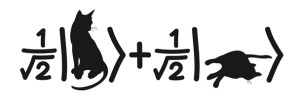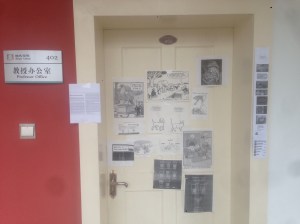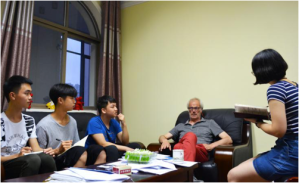Sure, one may say it is not a great deal, all the advantages of the digital world will of course also be there to make universities a better world and even help to open the doors to these still somewhat sacred halls of humanism, Western education strongly claiming this tradition as still guiding principle, proudly showing the two Humboldt’s, sitting in front of the main building
[https://de.wikipedia.org/wiki/Datei:Wilhelm_von_Humboldt_Denkmal_-_Humboldt_Universität_zu_Berlin.jpg]
[https://de.wikipedia.org/wiki/Datei:Alexander_von_Humboldt_Denkmal_-_Humboldt_Universität_zu_Berlin.jpg]
Admittedly – oh vanity – it had been an delightfully exhilarating feeling when entering the building for [one of?] my first public presentations, passing the busts and insignia of the
many ‘great forefather’ – and the few mothers mentioned. Being able to say ‘my forefathers’ allowed me to redefine my strange orphanage, knowing that it was indeed about moving on and moving up and stumbling through the academic world – witnessing and being part ….
Indeed, the baby can remain alive while occasionally the bathing water has to be changed. The problem, however, begins as soon as the new water proves to be poisoned.
*******
Warwick University is amongst quite a number that deserve being ‘reported’ as institutions
boxing humans – and I will later return to this case. Others are e.g. Brook [Canada], CUHK [HongKong], LSE [London], Oxford U and some UCL [somewhere on the island of independence-dreamers], being sufficiently arrogant to assume that everybody has to know who UCL is [actually it is possible to find out who is hiding behind the three letters: it is not Université catholique de Louvain, not the UEFA Champions League, Centre for Computational Psychiatry and Ageing Research … [interesting to see the differences in search engine results, depending on the location from which you search], but it is University College London – sure, symptomatically, being at such a UCL people begin to
think like a puddle [see also here for the entire text about the
Salmon of Doubt]: there is only one UCL – it is like the
puddle being the entire world, only made for you], are part of the experience of disrespect and a ‘special kind of illiteracy’ which may well go as culprit to court at some stage – though for me the [il]legal side is only a wee part of a story that shows the squalidness which higher education reached.
Now coming back to it: Talking about Warwick University means talking about one amongst many, denouncing one as example for a systematic defect. But it also means that it has some especially bitter taste as the history should have taught some wisdom.
Warwick is one of the universities founded during the times of a spirit of change: the forerunner, shock and also aftermath of the so-called 68-movement – forerunners, shock and aftermath also in a positive sense of taking up the need of investing in education, and understanding education as part of …, well not necessarily a revolutionary movement, but an emancipative strive in the spirit of the bourgeois enlightenment for which names like Kant and Humboldt and, yes also Mill and Smith stood. However
And at some this this culminated and
At stake was
And with this it was already at an early stage clear that the entire enterprise was concerned with a shift of understanding of subject matters, i.e. the self-uderstanding of disciplines. Here it changed for instance lets say from economics to ‘Management Science’.
Of course – and
Andrew McGettigan makes us aware of it – this has to be seen against the background of the changing economic situation in Britain at the time – though it hadn’t been Britain alone.
It is an often forgotten factor, unfortunately – as seeing this context may help us to understand the moves today, for instance looking at the
‘Eon Energy Research Center’ in Aachen, Germany or the more or less recent ‘donation’ of
twenty professorships: the technical university in Munich receives these from the discounter Lidl.
Much more could be said, also that Foundations [the professorships are provided by the Lidl-Foundation, not directly Lidl] are a kind of money-laundry-undertakings, other cases could be mentioned — mind snatchers are under way, even resulting in more or less funny …, perhaps Freudian slips? Briefly retuning to Warwick, we read that
Yes, God save the Queen and long live there multiple heirs. And though I recently looked into kind of shocked eyes when I mentioned the personal experience of the
1972 Anti-Radical Decree [oh, if official documents are looked at …and if some
others are considered].
*******
Back to the presence and the bad habits and style when it comes to dealign with applicants and referees – again:
- Students, naming referees, are asked to provide ‘institutional e-mail addresses’ – Shouldn’t a university that claims to be international and global accept that lecturers are international and global, sometimes not able to maintain mail addresses from previous positions, sometimes just making life a bit easier using onky one ‘private’ mail address instead of permanently changing and/or checking various addresses?
- Mails sent out to the institutional address are sent in completely automated fashion or at least the responses are not checked. Concrete: for my part I set up an auto-reply, informing the sender that the mail address they used is rarely checked and asking them to use another contact address. What happens? Nothing. The keen interest of students to get their application properly lodged and also the right of lecturers to be available in a self-defined way are not respected – even the self-respect of the universities diminished to the extent that they reduce themselves to illiterate, at most semi-literate machines.
- This is completed then by the expected formats of references: a questionnaire any person who is at least a little bit qualified in data analysis [not to speak of common sense] would immediately see as inappropriate, lacking meaning and not allowing gaining any insight it the student’s ability. Personal questions about the referee that breach protection of privacy and are completely irrelevant …
– Of course, the entire procedure may [and should] be questioned and there is the need to find better ways. But leaving this aside, it may deserve some further reflection: Should a questionable procedure, a matter that is extremely difficult to be answered, be followed up by further sub-standardising the way of dealing with it?
- Useful, then, would be to to protect referees against being bombarded by advertisement from those universities, offering the referee to apply for a graduate course … — so, apparently undergrads can act as referee??
End Administrative infantilisation – Please stop it
Artificial intelligence … – I am more concerned about artificial stupidity – but then again, it is certainly true that computers, also intelligent systems, are just doing what they are told do by humans: in other words there is no artificial stupidity, even if messages are from academic systems, we should not blame those algorithms. And one may summarise, saying that algorithmisation, further administration and infantilisation are very much different forms of incapacitation.
Other things may be added, different combinations can be found – the bottom line: human issues are dehumanised and passed on to systems that are completely lacking empathy, and do not even show some basic mindfulness and respect of the values the system they supposedly represent, claims as guiding. Simple: If a university claims to reflect and pursue the values of humanism in the truest sense, the same university should make sure that the instruments and tools, used by its departments work by applying and supporting these values.
*******
Navigare necesse est, vivere non est necesse – Plutarco
The other day I talked with a colleague about all these developments in academia, she commented: ‘And we all accept it.’ I think it is really one of the problems, may be we get up, oppose on small items individually, may be even as small or large groups but at the end of the day … – how can a system be changed, if changes are not approached on the system level, and systematically. Well, those who try have to pay. Those who have the say, always find a way. It is not least about ‘squeezing more into less’.
To sum up, it is about universities and their development from academic educational settings to slaves of business further to administered systems, now to IT-led information providers.
Of course, the ‘old Bologna’ was also about business – and there Polanyi comes in: business was controlled by society – sure, we should not forget that it was a more or less rotten feudal society … And society itself is today actually often a stupid bubble economy, only leaving some small niches, suggesting real life is about withdrawing, looking for individual escapes … .
So, there you see me back, unsettled, opposing the temptation of a navigare necesse est, vivere non est necesse as already criticised by Plutarch. I just want to live, and I want for everybody the right to do exactly that. That is surely different from permanently steering, moving from one emergency patch to another. And for the educational system it was already said by Alfred Marshall, thus even on the conservative side, stating
The schoolmaster must learn that his main duty is not to impart knowledge, for a few shillings will buy more printed knowledge than a man’s brain can hold. It is to educate character, faculties and activities; so that the children even of those parents who are not thoughtful themselves, may have a better chance of being trained up to become thoughtful parents of the next generation. To this end public money must flow freely. And it must flow freely to provide fresh air
and space for wholesome play for the children in all working class quarters.
And we should never forget: at the end we are all complying! Nolens volens? Being algorithmicised, further administering life instead of living it or being infantilised – as long as we are not ready to stand up collectively and speak out loudly.



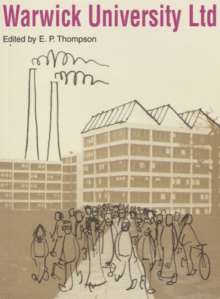

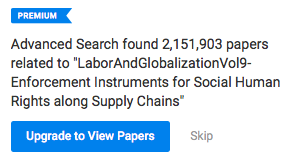


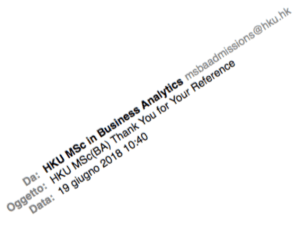
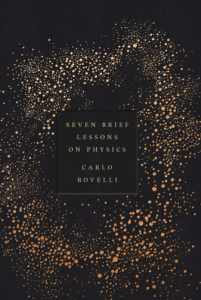

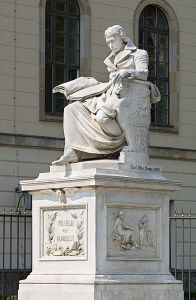


 [scan from: Johann Wolfgang Goethe, Faust – Der Tragödie Erster Teil, mit Illustrationen aus drei Jahrhunderten, ed. by Hans Hanning, Berlin: Rütting & Loening, 1982, 2nd ed., p. 123
[scan from: Johann Wolfgang Goethe, Faust – Der Tragödie Erster Teil, mit Illustrationen aus drei Jahrhunderten, ed. by Hans Hanning, Berlin: Rütting & Loening, 1982, 2nd ed., p. 123